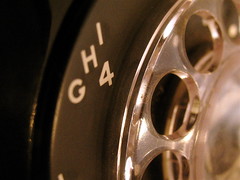Why I'm a streaming luddite
October 14, 2014 in digital music by Dan Gravell

I guess you could say I'm a streaming luddite...
Luddite
derogatory a person opposed to increased industrialization or new technology. "a small-minded Luddite resisting progress"
Let's not hold back; music streaming has taken the world by storm and it is taking over mainstream music listening. Talk to anyone under the age of 18 nowadays and they don't seem to even know what an MP3 is, let alone a CD! Over the course of the next years and decades, as those eighteen year olds move into adulthood, music streaming will become ever more pervasive.
It's easy to see why. With massive music libraries hosted in "the cloud" (AKA the Internet 😒 ) streaming offers a vast selection of music, instantaneously accessible whenever you need it (assuming an Internet connection). There's an immediacy that is attractive, at least at first thought.
There are further advantages. Without a music library to store, there's nothing to maintain. No metadata to groom, no backups to schedule. All of a sudden, it seems being a music lover got easy.

But there are costs involved this lack of control; this lack of ownership. These costs add up to why I still do not use a music streaming service.
Our music libraries are built over a lifetime; they tell of our happy and sad times, their memories evoke our feelings and experiences from when we listened to the music. You can still have that with streaming music, but the feeling of ownership from actually building and selecting which music you own is gone and with it much of the connection between music and memory.
This loss of ownership means a loss of control. Loss of control means being forced to use specific music players and living within the pre-ordained "eco system" of your chosen music provider. This affects which hardware music players you might buy. What if your expensive stereo system retracts their integration with your music service? Cross fingers, I guess, that they don't.
Loss of control also means not being able to choose how music is stored, its audio quality, how it is classified, the different forms of artwork linked to the music and so on. It also means, more fundamentally, you only get music where you have an Internet connection. As unbelievable as it may sound to Californian Internet whizz-kids, not everywhere has a pervasive Internet connection.
The immediacy of music streaming seems seductive but I wonder if it compromises our relationship with music in a The Shallows-type situation. The 60s and 70s, and right through to the 90s, were the eras of the album. A collection of tracks, ideally with consistent themes, content, tones or styles between the tracks. As a result, the album became more than the sum of its parts, and listening to the album in its entirety was the way you listened to music. In the present day of the playlist and play anything, RIGHT NOW, this seems to be lost.
And when it all comes down to it, we all die. Even that appears unresolved when it comes to music streaming.
Thanks to nerissa's ring for the image above.

